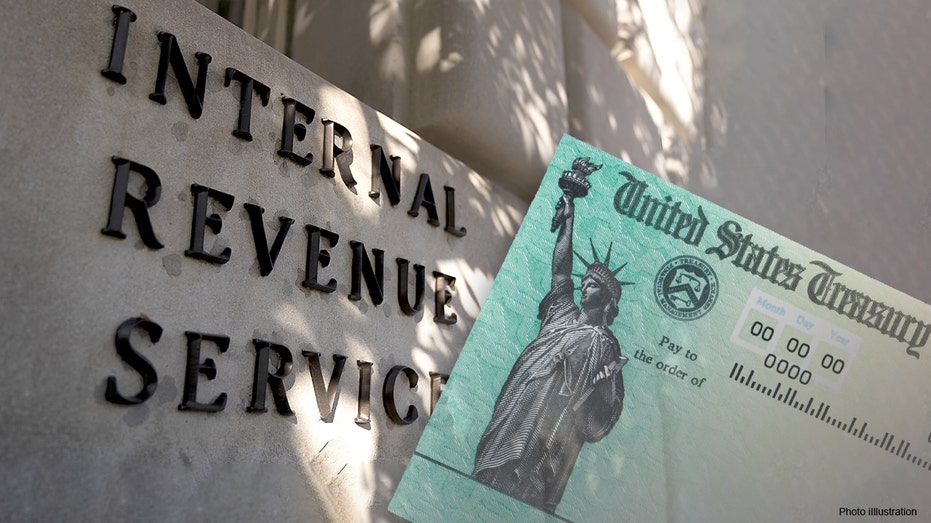California facing $24B budget shortfall amid economic uncertainty
California's tax revenues are forecasted to be $41 billion less than expected.
California windfall tax would lead to refinery 'shutdowns,' 'exacerbate' oil supply crisis: Andy Lipow
Lipow Oil Associates President Andy Lipow calls for a 'balanced approach' to the 'expensive' renewable energy push.
California's government is facing an estimated budget deficit of $24 billion this year, a stark reversal from the record-setting surpluses that the state saw in recent years which comes amid ongoing inflation and heightened fears of a looming recession.
California's Legislative Analyst's Office (LAO), which provides state officials with nonpartisan budget forecasts, warned in a report that the state faces a projected $24 billion deficit in 2023-24 mainly because tax revenues are about $41 billion lower than expected.
"Spurred by pandemic‑related federal stimulus, the U.S. economy entered a period of rapid expansion in the summer of 2020 that extended through 2021," the LAO wrote. "Over the last year, however, evidence has mounted that this rapid economic expansion was unsustainable."
CALIFORNIA APPROVES $2.9B INVESTMENT TO DOUBLE CAR CHARGERS IN STATE

SAN FRANCISCO, CALIFORNIA - OCTOBER 06: (L-R) California Gov. Gavin Newsom speaks during a press conference on October 06, 2022, in San Francisco, California. ((Photo by Justin Sullivan/Getty Images) / Getty Images)
The COVID Money Tracker produced by the Committee for a Responsible Federal Budget (CRFB) found about $577 billion in federal relief made its way to California from the outset of the pandemic in early 2020 through December 2022. That figure includes a variety of items ranging from individual stimulus checks and Paycheck Protection Program loans for California businesses to funds for healthcare programs and schools.
Those relief funds, in addition to the economic expansion that drove larger income tax receipts from high earners, helped bolster the state's finances. The influx was such that a mere eight months ago, California Governor Gavin Newsom (D) announced that the state brought in a historic $97 billion surplus.

California Gov. Gavin Newsom walks through the assembly chamber with California Controller Malia Cohen during the opening session of the California Legislature in Sacramento, Calif., Monday, Dec. 5, 2022. (AP / AP Newsroom)
State officials promptly lined up spending priorities for that surplus. By law, half of the surplus went to education projects. However, Newsom also announced an $18 billion inflation reduction package that included additional stimulus payments to Californians on top of those the state and federal governments provided earlier in the COVID-19 pandemic, while billions more went to infrastructure projects and other initiatives.
Those one-time spending initiatives, known as "augmentations" under California's budget, have been over $30 billion the last two fiscal years and figure to be at a similar level for 2023-24. The LAO recommended that the California legislature identify whether recent augmentations should be paused, delayed, or reassessed to see whether those expenditures are worthwhile or could be put off to relieve pressure on the budget.
CALIFORNIA REPARATIONS PROPOSAL COULD MEAN $223K PER PERSON IN PAYMENTS FOR BLACK RESIDENTS

The Internal Revenue Service (IRS) headquarters in Washington, D.C., U.S., on Thursday, Oct. 8, 2020. The White House shifted tack on Thursday, signaling that the administration is again leaning toward a large-scale stimulus bill after House Speaker
The $24 billion deficit is reportedly unlikely to endanger a number of government programs Newsom and the legislature's Democrats have enacted in recent years, such as the expansion of public kindergarten to four-year-olds and state-subsidized healthcare for unauthorized immigrants. But California Department of Finance spokesman H.D. Palmer noted, "While we’re in fact better prepared, that doesn’t mean that the decisions to close the coming budget gap won’t be difficult — particularly if the economic conditions that have slowed the economy continue, or get worse."
The LAO's budget analysis noted that California's revenues could take an even bigger hit and further widen the budget gap if a broader economic downturn occurs in the near future. It found that if a recession occurs soon, based on historical experience California's "revenues could be $30 billion to $50 billion below our revenue outlook in the budget window."
If a recession transpires and the pressure rises further on the state's budget, California has a sizable rainy day fund it could choose to draw on. The state has roughly $37 billion in reserve funding, including about $23 billion that the state could have available to use to plug financial holes.
GET FOX BUSINESS ON THE GO BY CLICKING HERE
Drawing down the rainy day fund would likely put California in a difficult position in future years, as the $24 billion deficit in 2023-24 may be just the beginning of the state's fiscal challenges. The LAO's report projects that California will run smaller deficits in the following three years, including roughly $17 billion in 2024-25, $12 billion in 2025-26, and $7 billion in 2026-27.
The Associated Press contributed to this report.




















